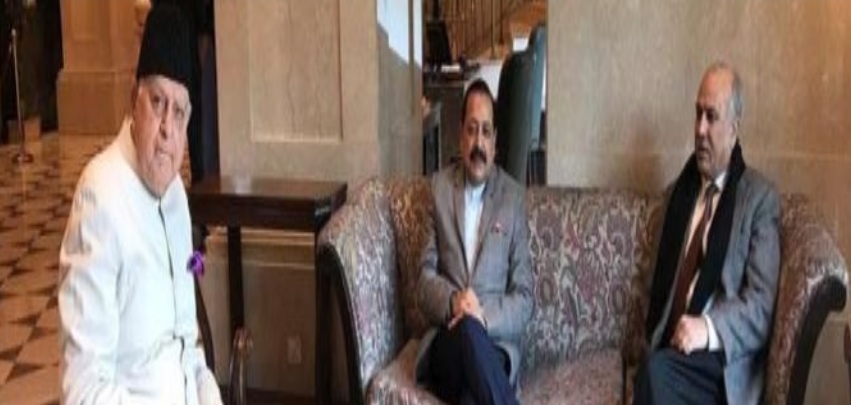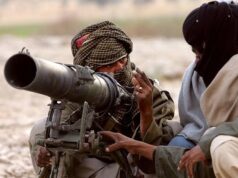J&K Delimitation Panel Presents It’s Proposal For 90 Seats

Farooq Abdullah (left) with Union Minister Jitendra Singh (centre) at a hotel in Delhi
The delimitation process is carried out at regular intervals to ensure that each constituency has approximately an equal number of voters. The process is usually carried out when a state is divided which is the case with J&K, which was split into the Union Territories of J&K and Ladakh. Elections have not been held in the state since the dissolution of the state Assembly on November 21, 2018.
Delimitation in Jammu and Kashmir was done in 1963, 1973 and 1995 when the state was under President’s Rule. Delimitation was frozen by the Jammu and Kashmir assembly from 2001 till 2026. However, after the reading down of Article 370, the Central government ordered the formation of the Delimitation Commission in J&K.
According to the government notification dated March 6, 2020, retired Supreme Court judge Ranjana Desai and the State Election Commissioner of the concerned Union Territory were appointed as the other two members of the Delimitation Commission. On May 26, 2020, three JKNC Lok Sabha MPs Farooq Abdullah, Hasnain Masoodi, Akbar Lone and two BJP MPs Jitendra Singh and Jugal Kishore were nominated by the MHA as associate members of the panel.
Before Jammu and Kashmir was split into two UTs in 2019, the erstwhile state had 87 seats in the assembly: 46 in Kashmir, 37 in Jammu and four in Ladakh. The J&K assembly also had 24 seats vacant for Pakistan-occupied Kashmir on which elections were not held. Thus total number of seats were 107.
Even as per the Jammu and Kashmir Reorganisation Act, 2019, the number of seats in the Legislative Assembly of J&K shall be increased from 107 to 114( counting the 4 seats of Ladhak and POK ).
Now the Delimitation Commission after completing its work has prepared the first Draft in which it has proposed six additional assembly seats for Jammu region and one for Kashmir. This will bring the number of assembly seats to be elected in the Union territory to 90. Two women will be nominated as was the practice before. The draft also proposes to reserve nine seats for scheduled tribes (STs) and seven for scheduled castes (SCs). The Delimitation Process has proposed this change in order to maintain a balance between both regions.
The delimitation draft proposal has been put up before the associate members of the Delimitation Commission – the five MPs representing the Union territory of J&K in Parliament – at their meeting with the panel members here on Monday .
NC MP Hasnain Masoodi said the MPs told the commission that the proposal was unacceptable to them.
“The commission told us that we can file our objections to the draft by December 31,” he said. “We also told them that the population of J&K has increased since the 2011 Census—which was made the basis for the delimitation—and that cannot be ignored.”
The National Conference had initially refused to meet the commission on the pretext that the constitutional validity of the J&K Reorganisation Act—under which the BJP-led government set up the panel—was pending before the Supreme Court.
However, the party later decided to meet the commission after asking the panel to declare its agenda




